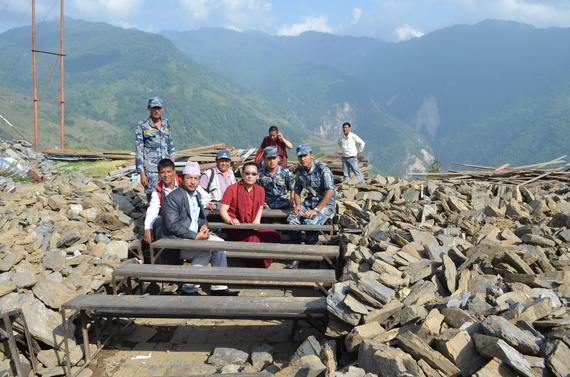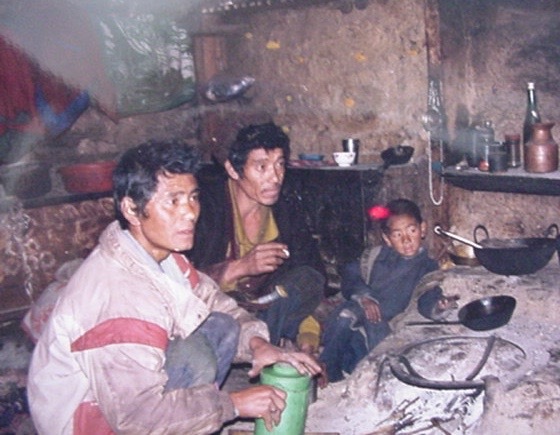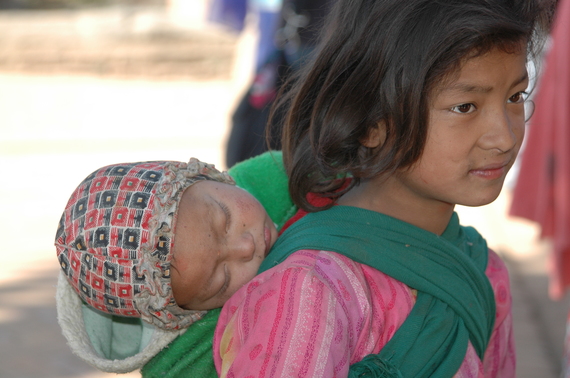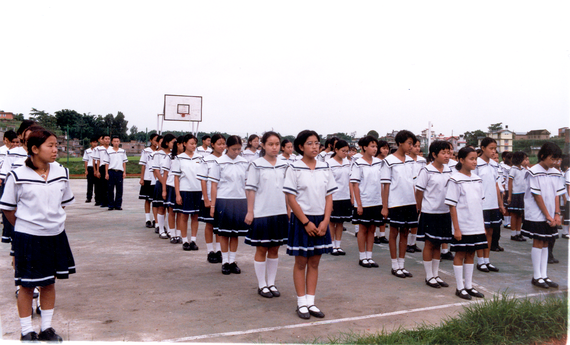In the wake of a disaster, there is a desperate immediate need for food, shelter, medicine and other aid. But in the longer term, entire systems may need to be rebuilt. And in that rebuilding, there may be an opportunity to make something truly positive from tragedy. I believe that this opportunity exits in Nepal today. It is an opportunity to bring education to a far larger part of the population.
To me, education is central to improving people's lives -- education and poverty coexist in a vicious cycle. Unfortunately, people who have had little or no education often don't understand its value. I have heard some parents in rural Nepal ask why they should send their children to school just so a teacher can get a salary. They truly believe that the point is to employ the teacher. They don't understand the link to their children's future. However, they understand very clearly what it costs the family in the present: too much.
With the contribution of international agencies for socioeconomic development, yes, the Nepalese government has introduced a "free education for all" in its primary and secondary schools. However, the program fails to achieve its goals.
First, it is not truly free. Families still bear a lot of expense. They have to buy school uniforms and stationery. Although it is officially not permitted, most public schools also charge fees for admission, computer use, even exams. For very poor parents, that's a serious economic burden.
Then there is the added expense of lost-opportunity cost. Families have so many children that everyone has to work in order that everyone can be fed. Even young children may be sent to carry twigs or break stones into gravel to sell.
So the education is not actually free. Ultimately, the stomach comes before the brain and the children stay home to work.
Education is also not "for all." Because girls ultimately go their husband's families, there is no perceived return for investing in a daughter. That cultural norm, compounded by economic hardship, results in little incentive to spend money to educate girls.
Of course, there are parents who do understand that education can help their children's future. But when the quality of the education is poor, even those parents become indecisive; often they decide it is more valuable for the children to stay home to work.
Long before the recent earthquakes, UTBF (United Trungram Buddhist Foundation) was working to improve this situation. We founded a school, the Trungram International Academy (TIA), that gives close to 500 children a year a high-quality education. TIA is not a free school, but it provides a number of scholarships for the best students. We also started a grant program in rural areas, where we give parents a stipend for sending their children to school. The stipend covers their out-of-pocket costs, and adds a little extra for food. If the children stop attending school, the stipend stops, too. This has been a successful strategy, and one we hope to expand, just as we hope to expand the scope of our school.
Perhaps as we gain people's trust through long-term relief efforts--such as rebuilding homes, gumbas and community centers--we can convince parents of the value of an education for both boys and girls. Perhaps we can even help them experience it for themselves. I have been speaking with a specialist whose doctorate is in optimizing Himalayan farming, and who is eager to help us develop programs. We hope we can teach the parents better farming techniques--for instance, which plants grow best at a specific altitude, what to plant on the shaded face of the mountain, and when to leave land fallow for a season. As they find that these new practices enable them to earn more money, they will not only lift themselves a bit further out of poverty, but they will experience the value of education first hand; we hope that will make them more receptive to educating their children.
By increasing education -- for both adults and children -- we can help foster greater independence. We can begin to help alleviate poverty and its related hardships. We can find an opportunity for transformation in the midst of tragedy.




